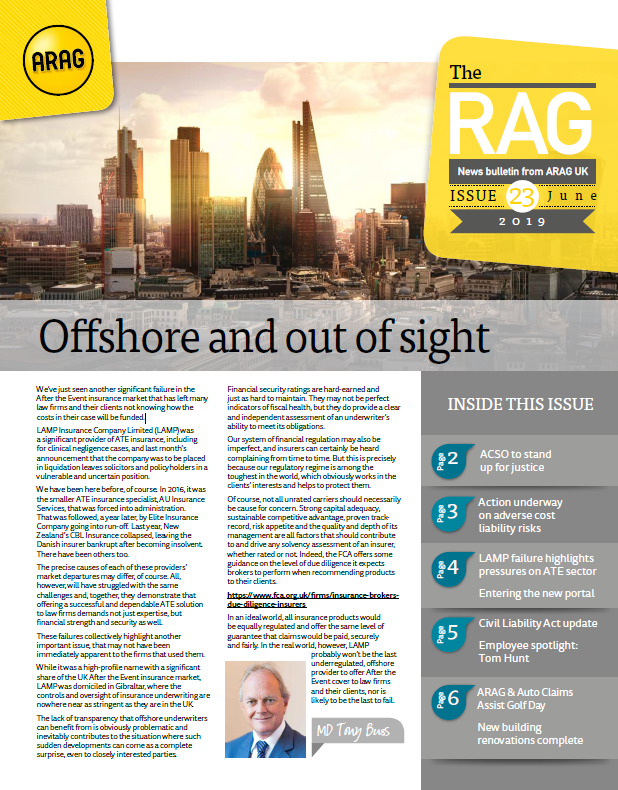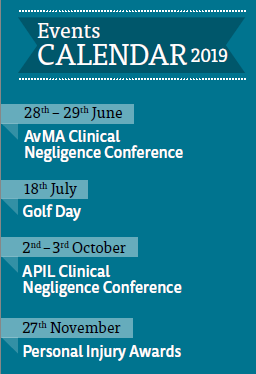
Offshore and Out of Sight
Originally published in the RAG #23 June 2019
We’ve just seen another significant failure in the After the Event insurance market that has left many law firms and their clients not knowing how the costs in their case will be funded.
LAMP Insurance Company Limited (LAMP) was a significant provider of ATE insurance, including for clinical negligence cases, and last month’s announcement that the company was to be placed in liquidation leaves solicitors and policyholders in a vulnerable and uncertain position.
We have been here before, of course. In 2016, it was the smaller ATE insurance specialist, AU Insurance Services, that was forced into administration. That was followed, a year later, by Elite Insurance Company going into run-off. Last year, New Zealand’s CBL Insurance collapsed, leaving the Danish insurer bankrupt after becoming insolvent. There have been others too.
The precise causes of each of these providers’ market departures may differ, of course. All, however, will have struggled with the same challenges and, together, they demonstrate that offering a successful and dependable ATE solution to law firms demands not just expertise, but financial strength and security as well.
These failures collectively highlight another important issue, that may not have been immediately apparent to the firms that used them. While it was a high-profile name with a significant share of the UK After the Event insurance market, LAMP was domiciled in Gibraltar, where the controls and oversight of insurance underwriting are nowhere near as stringent as they are in the UK.
The lack of transparency that offshore underwriters can benefit from is obviously problematic and inevitably contributes to the situation where such sudden developments can come as a complete surprise, even to closely interested parties.
Financial security ratings are hard-earned and just as hard to maintain. They may not be perfect indicators of fiscal health, but they do provide a clear and independent assessment of an underwriter’s ability to meet its obligations.
Our system of financial regulation may also be imperfect, and insurers can certainly be heard complaining from time to time. But this is precisely because our regulatory regime is among the toughest in the world, which obviously works in the clients’ interests and helps to protect them.
Of course, not all unrated carriers should necessarily be cause for concern. Strong capital adequacy, sustainable competitive advantage, proven track record, risk appetite and the quality and depth of its management are all factors that should contribute to and drive any solvency assessment of an insurer, whether rated or not. Indeed, the FCA offers some guidance on the level of due diligence it expects brokers to perform when recommending products to their clients.
In an ideal world, all insurance products would be equally regulated and offer the same level of guarantee that claims would be paid, securely and fairly. In the real world, however, LAMP probably won’t be the last underregulated, offshore provider to offer After the Event cover to law firms and their clients, nor is likely to be the last to fail.

Disclaimer - all information in this article was correct at time of publishing.



